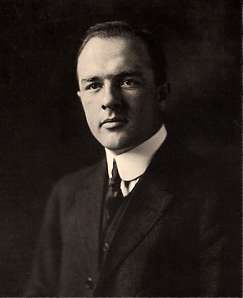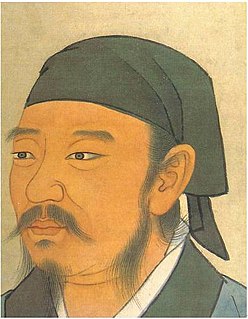A Quote by Aleister Crowley
As soon as you put men together, they somehow sink, corporatively, below the level of the worst of the individuals composing it. Collect scholars on a club committee, or men of science on a jury; all their virtues vanish, and their vices pop out, reinforced by the self-confidence which the power of numbers is bound to bestow.
Related Quotes
Men in general are too material and do not make enough human contacts. If we search for the fundamentals which actually motivate us we will find that they come under four headings: love, money, adventure and religion. It is to some of them that we always owe that big urge which pushes us onward. Men who crush these impulses and settle down to everyday routine are bound to sink into mediocrity. No man is a complete unit of himself; he needs the contact, the stimulus and the driving power which is generated by his contact with other men, their ideas, and constantly changing scenes.
Strength, Courage, Mastery, and Honor are the alpha virtues of men all over the world. They are the fundamental virtues of men because without them, no 'higher' virtues can be entertained. You need to be alive to philosophize. You can add to these virtues and you can create rules and moral codes to govern them, but if you remove them from the equation altogether you aren't just leaving behind the virtues that are specific to men, you are abandoning the virtues that make civilization possible.
Men have their virtues and their vices, their heroisms and their perversities; men are neither wholly good nor wholly bad, but possess and practice all that there is of good and bad here below. Such is the general rule. Temperament, education, the accidents of life, are modifying factors. Outside of this, everything is ordered arrangement, everything is chance. Such has been my rule of expectation and it has usually brought me success.
Plato assumes somehow that government is a way in which you put unselfish and ungreedy men in charge of selfish and greedy men. But government is an institution whereby the people who have the greatest drive to get power over their fellow men, get in a position of controlling them. Look at the record of government. Where are these philosopher kings that Plato supposedly was trying to develop?
It is self-evident that no number of men, by conspiring, and calling themselves a government, can acquire any rights whatever over other men, or other men's property, which they had not before, as individuals. And whenever any number of men, calling themselves a government, do anything to another man, or to his property, which they had no right to do as individuals, they thereby declare themselves trespassers, robbers, or murderers, according to the nature of their acts.
[A]ll popular and well-mixed governments [republics] . . . are ever established by wise and good men, and can never be upheld otherwise than by virtue: The worst men always conspiring against them, they must fall, if the best have not power to preserve them. . . . [and] unless they be preserved in a great measure free from vices . . . .
According to Solomon, life and death are in the power of the tongue; and as Euripides truly affirmeth, every unbridled tongue in the end shall find itself unfortunate; for in all that ever I observed in the course of worldly things, I ever found that men's fortunes are oftener made by their tongues than by their virtues, and more men's fortunes overthrown thereby, also, than by their vices.
Somehow ungodly men have developed systems of organization which permit them to work together in states of relative harmony and unity, whereas godly men, refusing to admit that these organizational structures are needed, live in states of chaos and disunity. The tragedy of this fact becomes evident when we realize that many of the successful systems of organization under which the godly men work and which the godly men refuse to accept are biblically based.





































